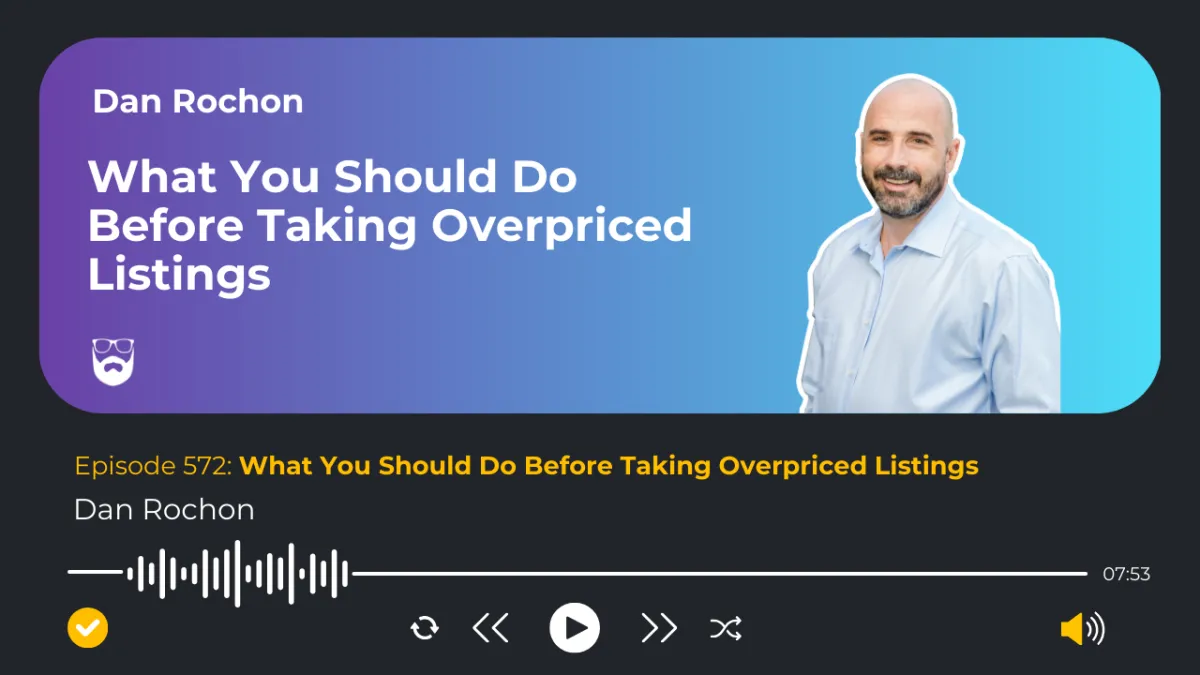
What You Should Do Before Taking Overpriced Listings
"It doesn’t matter what I say. It doesn’t matter what you say. The only thing that matters is: what does a buyer say?"
- Dan Rochon
Episode Summary
As real estate agents, we’ve all been there. You sit down with a seller, review the comps, explain the data — and they still want to list their home above market value.
It’s one of the toughest decisions you’ll face: Do you take the listing, even if it’s overpriced? Or do you walk away?
Over the years, I’ve learned that the answer isn’t always black and white. The key is knowing when it makes sense to proceed — and when it’s best to step aside.
My Rule of Thumb
I won’t take a listing that’s more than 5% above the recommended price.
Why? Because anything beyond that usually means wasted time, fewer showings, and an uphill battle. Staying within that 5% window gives the seller a chance to test their number without completely losing credibility with buyers.
Other Factors to Consider
Price is just one part of the equation. Before I commit to an overpriced listing, I ask myself:
What’s their motivation?
Sometimes sellers are testing the market because of timing. If they’re open to adjusting after a short trial period, I’ll work with them.Are they reasonable?
Some clients are coachable and willing to listen. Others will drain your energy with unrealistic expectations. I’d rather say no to a bad fit than waste weeks on frustration.Have I told them the truth?
My job is to show the reality of the market, backed by data. If I’ve been clear and honest, then it’s their choice whether to adjust or sit on the sidelines.
Letting the Market Speak
One of the best lessons I’ve learned is this: the market will always tell the truth.
I once worked with a seller who wanted to list at $625K when the home was really worth around $585K–$600K. That’s well outside the 5% threshold. But I set expectations upfront, explained the risks, and made it clear that the market would ultimately decide.
Within days, the silence was obvious — no showings, no activity. That lack of buyer interest spoke louder than anything I could say. Very quickly, the seller agreed to reduce the price closer to market.
That’s why I remind every seller: those first few days at a high price don’t really count. The real listing begins once the home is positioned where buyers see value.
The Bottom Line
When faced with an overpriced listing:
Stay within 5% of market value.
Evaluate motivation and reasonableness.
Always tell the truth with data.
Let the market be the deciding factor.
Because at the end of the day, it doesn’t matter what you or I say — the only voice that matters is the buyer’s.
